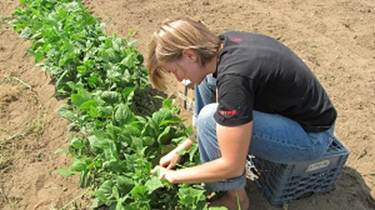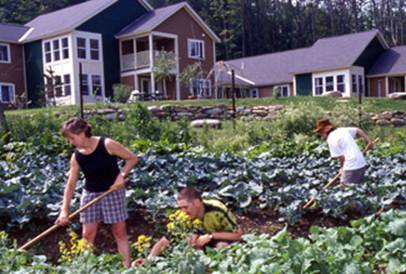The critical and growing gap in Canada’s mental health services has been well documented in recent months. Wait times of a year or more for programs spanning a mere six to eight weeks show no signs of improving. Subsequent transitional opportunities are scarce. The need for Eli’s Place has never been more urgent.
As Dr. Anthony Levitt, former Psychiatrist-in-Chief at Toronto’s Sunnybrook Health Sciences Centre explains, “Eli’s Place will provide critically needed, long-term, recovery-based intervention in an environment that is not available currently in Ontario.”
“Although these rural, skills-based models are available in the US and internationally, Ontario does not have this kind of resource and it is sorely needed. Eli’s Place holds the potential to provide life-changing treatments for a traditionally hard-to-serve population. It will be a source of hope and healing for young people with mental illness and addictions and their families.”


Dr. Ari Zaretsky, Sunnybrook’s Psychiatrist-in-Chief and Vice President Education, concurs. “I believe that many young adults with severe mental illness would highly benefit from a rural long-term recovery model of care. Eli’s Place can provide something very unique for people with mental illness who are looking for a holistic and integrated and empowering approach to their recovery.”
Annette’s story is a good case in point. She has struggled with mental health issues for more than 25 years and knows first-hand what it’s like to feel ignored by today’s mental health care system.
“So often, people like me have treatment done to and not with us. Many times, one of the things we need is to be an agent in our own lives; to be competent, to be capable, to be given a chance to have faith in ourselves.”
“The model at Eli’s Place,” she continues, “sees young adults with serious mental health issues as whole individuals, with a suite of talents and abilities, who can be well, and envision a healthy future. Most mental health programs teach you how to survive. Eli’s Place wants you to learn how to live.”
___________________________________________________________________________________________________
Welcome to Mental Health Notes
Mental Health Notes is a newsletter published by the Canadian Mental Health Association, Ontario, featuring mental health news and events.
More than half of people feeling depressed choose not to get help: study.
A new study by the Centre for Addiction and Mental Health shows that of 2,219 Ontario adults, 40 percent of respondents were found to be experiencing depressive symptoms. Results from the group, comprising people between 18 – 65 who had been working for more than a year, show that 52 percent did not perceive the need for treatment. The Financial Post reported the findings. The Post also examined how stigma and discrimination become factors in stopping people from divulging mental health issues or seeking help.
Mark Henick, program manager for CMHA’s Mental Health Works program, provided a workplace perspective. “Employers fail to recognize there is a power dynamic at play, said Henick. “If an employer comes in and there’s a dangling threat of dismissal and punishment, of course, employees are going to hide that they have issues going on.” Established in 2001, Mental Health Works is a social enterprise of CMHA. It provides workshops and training on workplace mental health to employers and employees.
How to start a Mood Walks group for youth in transition
Mood Walks is a province-wide initiative that promotes physical activity in nature, or “green exercise,” to improve physical and mental health. Mood Walks is a province-wide initiative that promotes physical activity in nature, or “green exercise,” to improve both physical and mental health. Led by CMHA Ontario, in partnership with Hike Ontario and Conservation Ontario, Mood Walks provides training and support for community mental health agencies, social service organizations and other community partners. Together, they launch educational hiking programs, connect with local resources, find volunteers, and explore nearby trails and green spaces.
The next phase of this project, Mood Walks for Youth in Transition, will build capacity to support youth at risk of or experiencing mental health issues.
Are you interested in hosting a Mood Walks group or partnering with a Mood Walks group in your community? A call for expressions of interest to participate in Mood Walks for Youth in Transition will be announced on November 2. Sign up for the Mood Walks newsletter to be notified when the call for expressions of interest is released.




